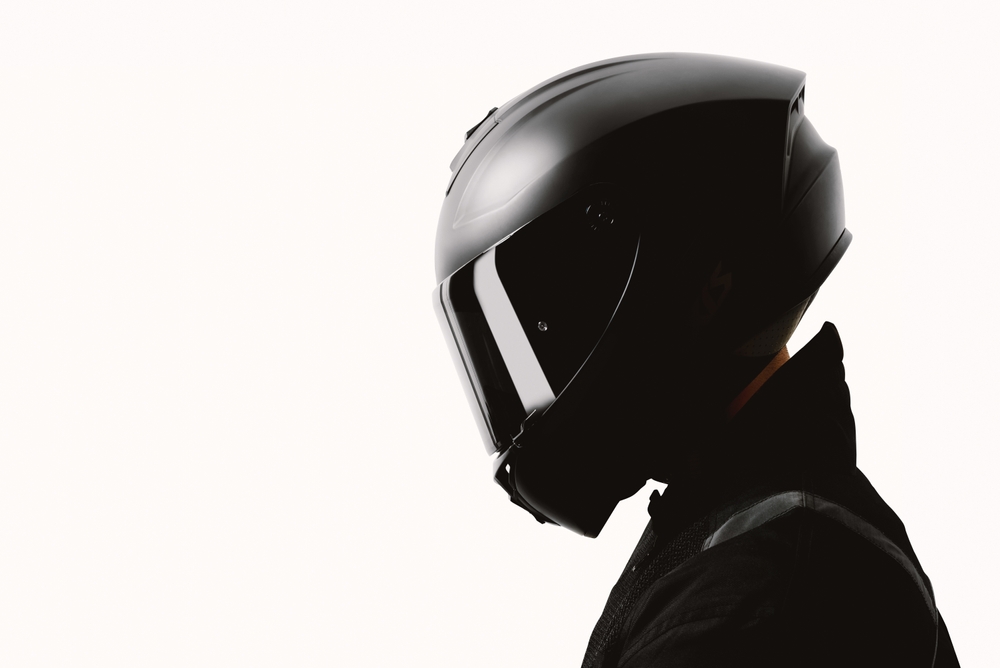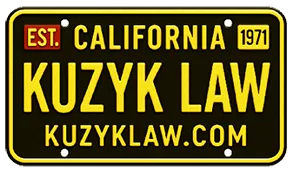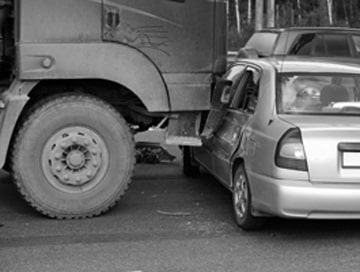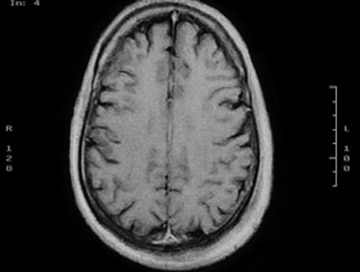
In the bustling ways of California, motorcycle riding offers a unique thrill and freedom on the open road. However, it is essential to consider the California Motorcycle Helmet Laws for 2023.
These regulations stand not only as legal requirements but also as critical guardians of rider safety. Enforced to protect riders and passengers, these laws underscore the paramount importance of wearing proper protective gear, notably helmets, while riding.
Implementing California motorcycle helmet law isn’t merely a legal obligation; it’s a measure that significantly mitigates the severity of head injuries in the unfortunate event of a motorcycle accident.
As the cornerstone of motorcycle safety, helmets serve as the first line of defense against life-altering injuries. Understanding the nuances of these laws becomes crucial, not just for adherence but for personal safety on the roads.
Moreover, beyond the immediate safety concerns, California’s Motorcycle Helmet Laws for 2023 have profound implications in the landscape of personal injury claims.
Adherence to helmet laws can directly influence the determination of fault and liability in an accident. Compliance with these regulations often becomes a pivotal factor in negotiating compensation and settlements following a motorcycle-related injury.
This comprehensive guide sheds light on the legal mandates, the impact on accident claims, and the pivotal role helmets play in safeguarding riders’ well-being.
Exploring these laws isn’t just about legal compliance; it’s a step towards informed safety and understanding the critical legal aspects of personal injury claims involving motorcycle accidents in California.
Helmet Use and Accident Prevention
Discussing the role of helmets in preventing head injuries during motorcycle accidents, emphasizing how wearing helmets can mitigate injuries and potentially impact the outcome of personal injury claims.
Here’s a detailed exploration of the role of helmets in preventing head injuries during motorcycle accidents and their impact on personal injury claims:
Helmet use stands as a critical factor in preventing severe head injuries in motorcycle accidents. Wearing a helmet significantly reduces the risk of traumatic brain injury and other head-related injuries.
In legal contexts, the use of helmets holds considerable weight, especially in states like California, where helmet laws mandate their usage for all riders. Failure to wear a helmet can influence personal injury claims, potentially impacting the compensation amount recoverable by an injured rider.
Importance of Helmet Use for Accident Prevention
In motorcycle safety, helmets serve as an indispensable safeguard against head injuries during accidents.
Adhering to California’s Motorcycle Helmet Laws for 2023 significantly reduces the risk of severe head trauma, brain injuries, and fatalities resulting from motorcycle accidents.
The statistics underscore the importance: wearing helmets is estimated to be 37% effective in preventing fatal injuries among motorcycle riders and about 67% effective in preventing brain injuries.
Mitigating Injuries Through Proper Helmet Use
Proper helmet use isn’t just about compliance; it’s a direct shield against catastrophic injuries. Helmets act as a cushion, absorbing the impact of collisions and averting direct trauma to the head and brain.
They distribute the force of impact across a larger area, reducing the severity of head injuries. In cases where motorcycle accidents occur, wearing an approved helmet can significantly lower the risk of traumatic brain injuries and blunt force trauma to the skull.
Impact on Personal Injury Claims
In the aftermath of a motorcycle accident, helmet use plays a pivotal role in shaping the outcome of personal injury claims.
Adherence to California’s helmet laws can significantly influence fault determination and liability attribution.
Insurance companies and legal entities often consider helmet use when evaluating the extent of injuries and the claimant’s responsibility for their safety.
Despite legal mandates, failure to wear a helmet might affect the compensation sought by the injured party.
Legal Implications and Comparative Negligence
California operates under a comparative negligence system in personal injury cases. If an injured motorcyclist wasn’t wearing a helmet as required by law, it might affect their claim.
While California follows a “fault” system for accidents, comparative negligence allows compensation adjustments based on each party’s degree of fault.
A failure to wear a helmet may result in comparative negligence, potentially reducing the compensation amount in proportion to the claimant’s degree of fault.
Helmets as Evidence in Personal Injury Cases
Helmets serve as tangible evidence in personal injury claims, often illustrating the extent of potential injuries.
Damaged or cracked helmets can underscore the severity of an accident and support injury claims. Conversely, well-maintained helmets showing minimal damage can bolster the argument that injuries sustained were mitigated due to proper safety gear usage.
Understanding the direct correlation between helmet use, injury prevention, and its legal implications becomes paramount for motorcycle riders in California.
Comprehending these nuances not only promotes safety but also strengthens one’s position in potential personal injury claims following accidents.
Legal Implications of Helmet Non-Compliance
In California, adhering to helmet laws is not only a matter of safety but also holds significant legal implications, mainly concerning personal injury claims arising from motorcycle accidents.
Failure to comply with helmet laws can directly impact such cases’ legal course and outcomes.
California’s Motorcycle Helmet Laws for 2023 mandate that all motorcycle riders and passengers wear helmets, meeting specific safety standards while riding on public roads.
Non-compliance with these laws might significantly impact personal injury claims following an accident. The state’s legal system considers helmet use a critical safety measure, and failure to wear a helmet can potentially affect liability and compensation.
What If I Wasn’t Wearing A Helmet?
In personal injury claims resulting from motorcycle accidents where the rider wasn’t wearing a helmet as required, the issue of liability and fault becomes a crucial consideration.
The absence of a helmet might be interpreted as contributory negligence, implying that the rider’s failure to comply with safety regulations could have contributed to the severity of injuries.
California follows a comparative negligence system, meaning fault can be assigned to multiple parties involved in an accident.
In cases where the injured rider wasn’t wearing a helmet, the opposing party or insurance company might argue that the rider’s failure to adhere to safety laws contributed to the injuries sustained.
This argument might reduce the compensation awarded to the injured party based on the degree of fault attributed to them.
Non-Compliance Laws in California 2023
Furthermore, non-compliance with helmet laws in California can impact the credibility of personal injury claims. Courts and insurance adjusters often take into account the injured party’s adherence to safety regulations when evaluating the validity of a claim.
Not wearing a helmet might raise questions about the rider’s commitment to safety practices, potentially weakening their position in the claim and affecting the compensation awarded.
It’s crucial for motorcycle riders in California to understand the legal implications of helmet non-compliance in personal injury claims.
Adhering to California helmet laws not only promotes safety but also strengthens the credibility of a claim by demonstrating a commitment to safety regulations, potentially influencing the claim’s outcome positively.

Helmet Standards and Their Role in Claims
Helmets are vital safety gear for motorcyclists, and their role extends beyond mere compliance with the law. Helmets certified by recognized safety standards like DOT, Snell, or ECE are essential components in personal injury claims resulting from motorcycle accidents in California.
When pursuing a personal injury claim following a motorcycle accident, the type of helmet worn can significantly impact the case’s outcome.
Helmets meeting approved safety standards indicate compliance with stringent safety regulations and are designed to provide superior protection in the event of an accident.
The use of certified helmets demonstrates an individual’s commitment to safety, which can bolster the credibility of their claim.
DOT (Department of Transportation), Snell, and ECE (Economic Commission for Europe) are some of the widely recognized helmet safety standards. These standards establish rigorous testing procedures for helmets to ensure they meet specific safety criteria.
Wearing Your Helmet Plays A Crucial Role In Your Personal Injury Claim
In California, wearing a helmet compliant with these standards is not only a safety requirement but can also play a crucial role in protecting the rights of injured individuals when filing a personal injury claim.
In personal injury claims resulting from motorcycle or auto accidents, helmets meeting these approved safety standards can serve as evidence of taking necessary precautions to mitigate injuries.
Courts and insurance adjusters often consider the quality of safety gear used by the injured party. Wearing a helmet meeting or surpassing these standards can positively impact the claim’s credibility, potentially strengthening the injured individual’s position in the case.
Moreover, helmets meeting safety standards are designed to offer superior protection against head injuries. In the unfortunate event of an accident, the use of such helmets can significantly reduce the severity of head trauma and mitigate injuries.
This reduction in injury severity due to the helmet’s high safety standards can positively influence the claim’s outcome, potentially leading to fairer compensation for the injured party.
Understanding the significance of helmet standards and ensuring compliance with recognized safety certifications is crucial for motorcyclists in Lancaster, California.
Importance of seeking legal counsel from experienced personal injury lawyers
Seeking legal counsel from seasoned personal injury attorneys with expertise in California’s helmet laws and their implications in compensation claims is invaluable for individuals involved in motorcycle or auto accidents.
The complexities of California bike helmet law, safety standards, and their direct link to personal injury claims necessitate expert guidance to navigate the legal intricacies effectively.
Experienced personal injury lawyers deeply understand California’s helmet laws, including the specific legal requirements for motorcyclists. They are well-versed in the nuances of how helmet compliance or noncompliance can impact compensation claims following an accident.
With their specialized knowledge, these attorneys can provide invaluable insights into how helmet use, safety standards, and legal compliance play pivotal roles in personal injury cases.
Choosing the proper legal representation after a motorcycle accident is crucial. An adept personal injury attorney, proficient in helmet laws and their relation to compensation claims, can significantly impact the outcome of a case.
They can assess the circumstances surrounding the accident, evaluate the use of safety gear, and advise on the best legal strategies to pursue fair compensation for the injuries sustained.
Additionally, skilled personal injury attorneys can guide individuals through the complexities of personal injury claims, ensuring that their rights are protected and advocating for their best interests.
They can offer comprehensive legal advice, gather evidence, interview witnesses, and negotiate with insurance companies on behalf of their clients. Their expertise enables them to build a strong case, leveraging helmet compliance and safety standards to bolster the injured party’s position during settlement negotiations or in court.
Choosing the proper legal representation is critical for individuals involved in motorcycle accidents. Opting for a reputable personal injury lawyer with a proven track record in handling cases related to helmet laws and compensation claims can make a substantial difference in the outcome of a case.
Their expertise, guidance, and advocacy can significantly enhance the injured party’s chances of securing fair and just compensation for their injuries.
Helmet Selection and Safety
Crafting a comprehensive guide to helmet safety standards illuminates the crucial considerations for riders seeking optimal protection while adhering to legal requirements.
The Department of Transportation (DOT), Snell, and Economic Commission for Europe (ECE) certifications serve as benchmarks, delineating the stringent safety parameters for motorcycle helmets.
Understanding the distinctive features mandated by these certifications empowers riders to select helmets that not only comply with legal standards but also prioritize their safety on the roads.
This exploration unveils the intricate details that define a certified helmet, offering riders valuable insights into the qualities essential for maximum protection and potential impact on compensation claims following a motorcycle accident.
DOT (Department of Transportation) Helmet Standards
Helmets meeting DOT standards undergo rigorous testing and must meet specific criteria set forth by the Department of Transportation. A DOT-certified helmet will feature a “DOT” sticker on the back, signifying compliance. These helmets are tested for impact resistance and penetration, ensuring they provide adequate protection.
They feature an impact-absorbing liner and a sturdy chin strap to secure the helmet in place during a crash. The helmet must also have a specific thickness and weight to meet DOT standards, ensuring it offers adequate protection to the head.
Snell Helmet Standards
Snell certification, administered by the Snell Memorial Foundation, sets higher safety standards compared to DOT.
Helmets with Snell certification undergo more stringent testing procedures, focusing on impact resistance, penetration, and higher energy levels.
Snell-certified helmets typically include a thicker, multi-layered shell designed to effectively absorb and distribute impact forces. These helmets often undergo random testing even after certification to ensure ongoing quality and safety.
ECE (Economic Commission for Europe) Helmet Standards
Helmets adhering to ECE standards meet the regulations established by the Economic Commission for Europe.
ECE-certified helmets feature an ECE label or sticker indicating compliance. These helmets undergo rigorous testing for impact absorption, retention system effectiveness, field of vision, and peripheral vision.
They are designed to provide comprehensive protection, ensuring the helmet remains intact and secured on the rider’s head during an accident.
Importance of Helmet Certification in Personal Injury Claims
Wearing a helmet complying with these safety standards is crucial for personal safety and can significantly impact the outcome of a personal injury claim following a motorcycle or auto accident.
Helmets meeting these standards offer superior protection against head injuries, and their compliance strengthens the rider’s position in legal proceedings.
The certification serves as concrete evidence that the rider took necessary safety precautions, potentially influencing the compensation amount in the event of an accident.
Choosing a helmet with DOT, Snell, or ECE certification is paramount. These safety standards ensure that the helmet has undergone thorough testing to offer maximum protection.
Riders must carefully inspect for the specific certification stickers and labels to ensure their helmet meets these safety standards, providing optimal protection on the road and reinforcing their rights in case of an unfortunate accident.
As you navigate the complexities of seeking compensation following a motorcycle accident in California, partnering with legal experts who possess a proven track record is essential.
Got Questions? Contact The Motorcycle Accident Lawyers at Kuzyk Personal Injury & Car Accidents Lawyers Today!
Kuzyk Personal Injury & Car Accidents Lawyers stands as a beacon of legal expertise, offering unparalleled guidance and support in personal injury cases, including motorcycle and auto accidents.
Renowned for their unwavering dedication and personalized attention, the firm’s seasoned attorneys bring an extensive understanding of California’s motorcycle helmet laws and the intricacies of compensation claims.
Their commitment to advocating for clients’ rights, combined with their in-depth knowledge and compassion, ensures that each case receives meticulous attention and tailored strategies to pursue the maximum compensation deserved.
Contact Kuzyk Personal Injury & Car Accidents Lawyers today to benefit from their experience, professionalism, and unwavering commitment to securing your best interests after a motorcycle accident in California.












